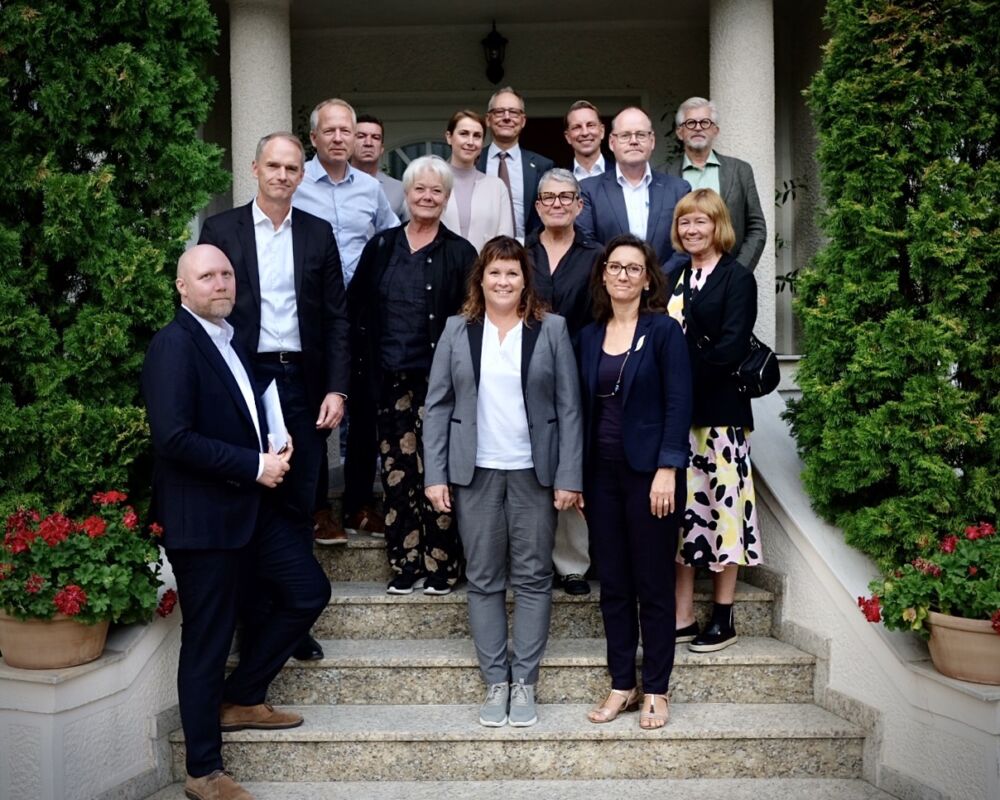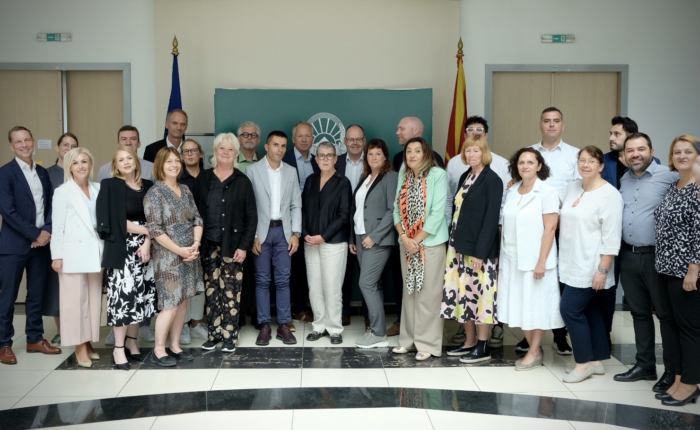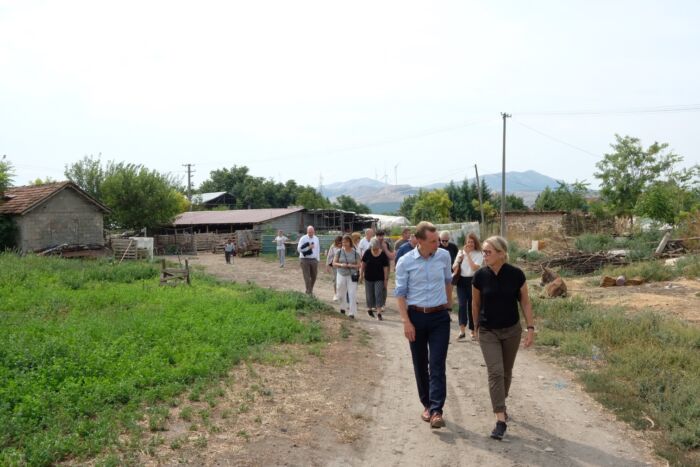We Effect's mission to boost agriculture and economic resilience in North Macedonia amidst Ukraine's war
Date
September 14, 2023
The Board of Directors and Secretary General Anna Tibblin met with the Swedish Ambassador Ami Larsson Jain in Skopje. Photo: Robert Englund
Since the war in Ukraine began, North Macedonia’s economy has experienced a sharp decline. As farmers’ costs increase, consumers’ ability to afford food decreases. Closed borders between Russia and Europe have led to reduced imports and exports, further impacting the country’s economy. Now more than ever, it is crucial for the country’s farmers to diversify their food production and find new markets to sell to.
North Macedonia is a country with a lot of arable land and among the most fertile soils you can find in Europe, yet much potential remains untapped due to a significant shortage of labor and expertise in agriculture. Farming in the country is simply not profitable enough to employ staff, and the wages offered are too low to interest the country’s young population in agriculture. Instead, much of the food consumed in the country is imported.
– There is so much untapped potential here. But I am convinced that with the right efforts, we can create a more profitable and productive agriculture sector. Then the sector will also become more attractive for young people to invest in, says Lotta Folkesson, Chair of the We Effect Board.
Many countries, including North Macedonia, have close trade relations with Russia. Now, these countries are forced to choose sides: should they align with the East or the West. This makes closer relations between the EU and Eastern European countries geopolitically more crucial than ever.

To restore profitability to small-scale agriculture in North Macedonia, the small country must reduce its dependence on imports while finding new export markets in the region and the EU. Today, the country is in the process of eventually becoming EU member. And while the road ahead is still long, the war in Ukraine has increased motivation from both North Macedonia and the EU to draw closer. An important step in this would be to develop the country’s agriculture so that its products meet EU import standards. Then they could quickly increase their exports to more and better-paying countries.
– The country has a way to go, but the farmers have come a long way. If the farmers, who currently only operate on a small scale using older methods, manage to organize themselves and make joint modernizations, I see great opportunities here. We Effect is working to help them complete their development so that their products meet EU’s internal market requirements. It would be an incredible boost for the country’s economy and an important step towards the EU integration, says Anna Tibblin, Secretary General of We Effect.
When the Board met with the country’s Minister of Agriculture, Ljupcho Nikolovski, this was his top priority, and he thanked Sweden and We Effect for their support in this regard and expressed a strong desire to deepen this cooperation. And just as the EU’s analysis suggests, it will be necessary for farmers, who predominantly operate very small farms, to come together in joint investments and efforts to manage their transition.

We Effect currently works with several organizations in the country, including NFF, which can be compared to Sweden’s LRF. When we met their President, Vaska Mojsovska, she also shared this analysis, saying that they are working hard to get more farmers to join cooperative businesses. In this effort, We Effect contributes with expertise in cooperative organization and with the experiences that our member organizations bring from Sweden.
Right now, we are exploring additional opportunities for collaboration, which was a significant purpose of the trip, with representatives from LRF, Riksbyggen, HSB, OK, Swedbank, and Folksam participating.
The Swedish government has expressed a desire to increase its aid efforts in Eastern Europe and the surrounding region, including the Balkans. They are also in the process of reforming aid, with more resources going towards development initiatives that lead to trade. We Effect and its Board see good prospects for this in North Macedonia, as well as in Moldova, Bosnia, and Romania. Now, we hope to take the insights we’ve gained from the trip and formulate new partnerships and activities in the region.